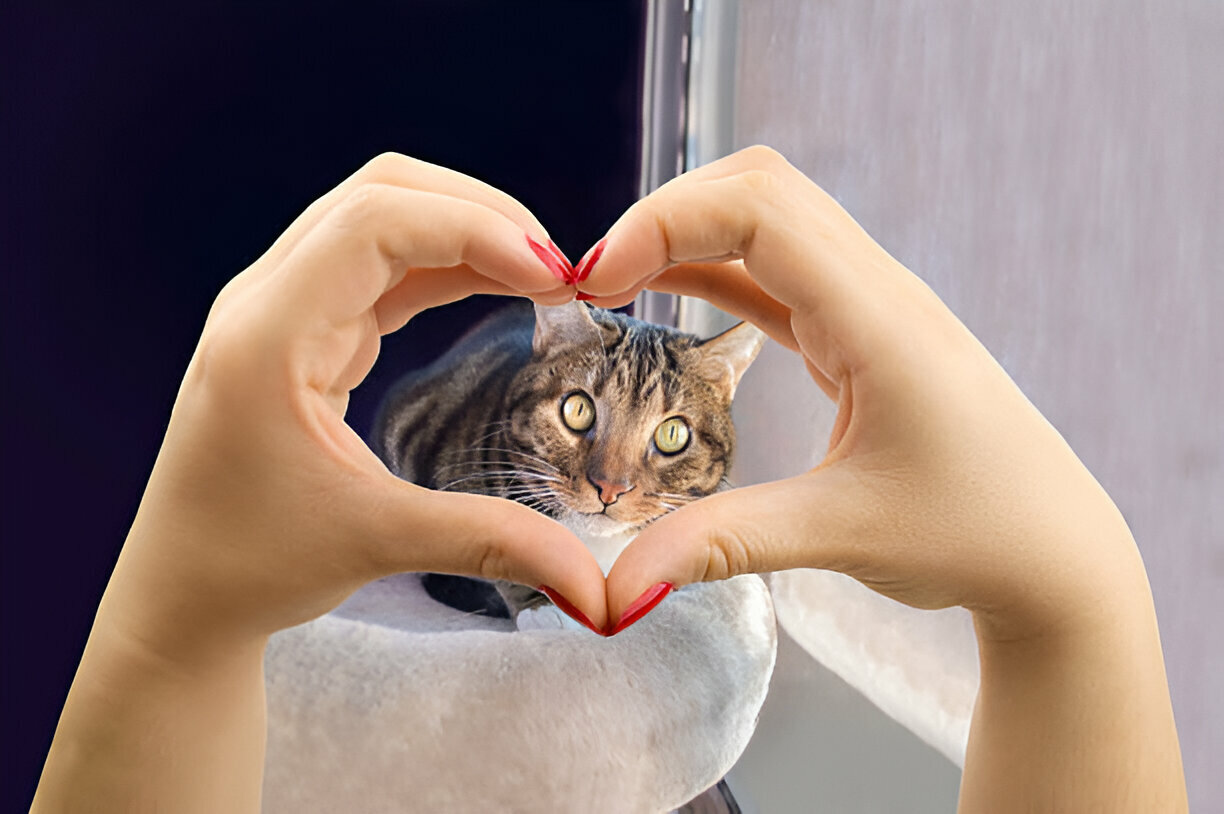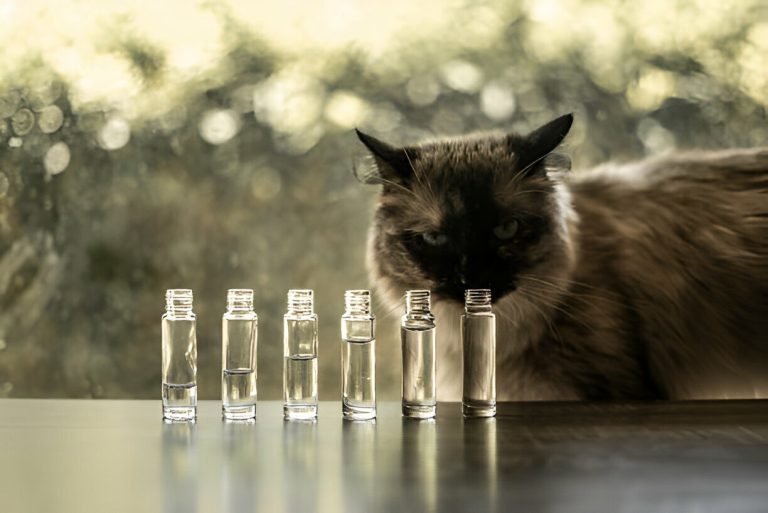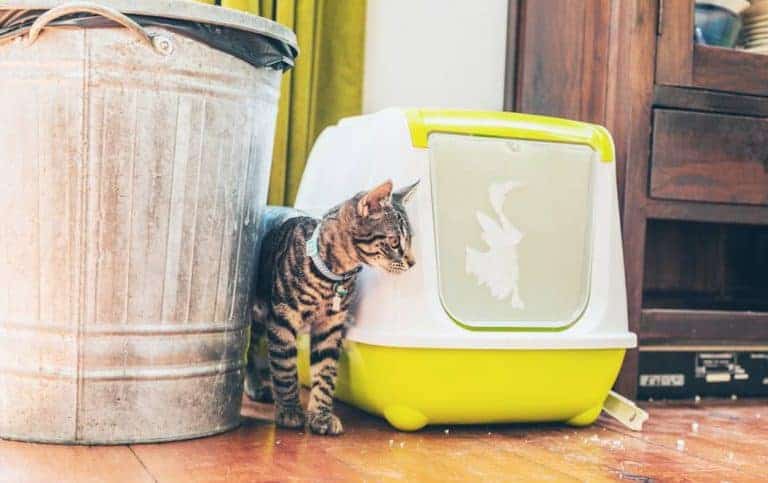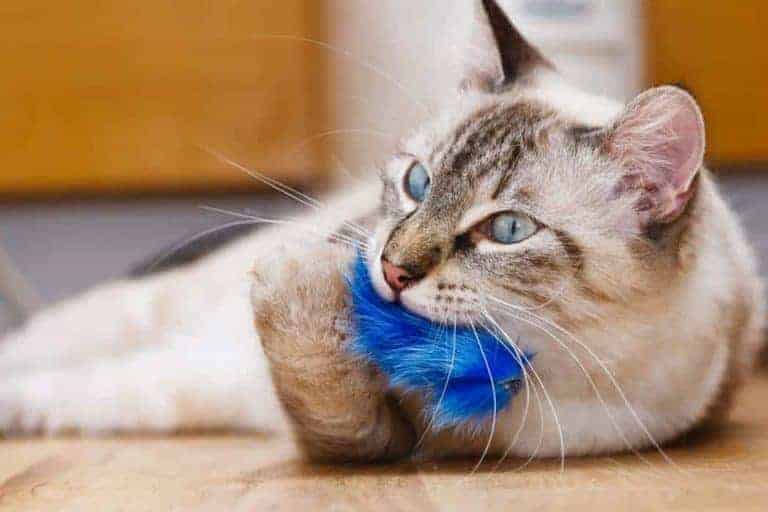Heartgard for Cats: Essential Protection for Feline Heart Health

Heartgard for cats, known generically as ivermectin, is a medication that’s used to prevent heartworm disease. Heartworms, parasitic worms that can inhabit the lungs and hearts of cats, pose a serious health risk even though infection rates in cats are significantly lower than in dogs. Feline heartworm disease can lead to severe lung disease, respiratory failure, and even death.
Heartgard for Cats presents itself as a pivotal player in the safeguarding of feline cardiac wellbeing. Unlike its canine counterpart, the feline formula is meticulously tailored to cater to the unique physiology of cats. It operates not only by thwarting the maturation of the heartworm larvae but also by assuring a minimal risk of adverse reactions, a matter of considerable significance given the delicate nature of feline patients.
Moreover, this medication comes in a palatable form that eases the task of administering it to often-finicky feline companions. The monthly dosage is designed to be both convenient for cat owners and effective in maintaining continuous protection against heartworms. The unique challenges posed by heartworm prevention in cats, such as their sporadic eating habits and sensitivity to medications, are well-addressed by the carefully calibrated dosages provided by Heartgard for Cats.
The discussion will continue by delving into the intricate details of Heartgard for Cats administration guidelines, precautionary measures, and the importance of veterinary guidance when implementing a heartworm prevention strategy. Owners’ experiences, alongside veterinary advice, offer a comprehensive view of this medication’s role in a proactive feline health regimen.
To assure that every angle is considered, the upcoming section will also scrutinize the spectrum of efficacy that Heartgard for Cats promises, the significance of timely prevention in the lifecycle of the heartworm, and the potential economic advantages presented by preventive measures over the cost of treating a full-blown heartworm infestation. This ensures cat owners are furnished with the knowledge necessary to make well-informed decisions regarding their beloved pet’s health.
Our furry companions rely on us for their well-being, making it paramount to understand the nuances of treatments like Heartgard for Cats. Thus, the reader will gain an appreciation for the comprehensive nature of this medication intertwined with the realities of everyday cat care. Herein lies the confluence of scientific innovation and the pragmatic needs of both pet and pet parent, underscoring the essential role of continuing education in the realm of feline health maintenance.
- Heartgard for cats is a medication designed to prevent heartworm disease, which is transmitted by mosquitoes and can be fatal to felines.
- The active ingredient in Heartgard for cats is ivermectin, which works by eliminating the tissue stage of heartworm larvae and thus preventing the development of adult heartworms.
- It is essential to administer Heartgard monthly, as recommended by veterinarians, to ensure continuous protection against heartworm disease.
- Unlike versions for dogs, Heartgard for cats does not require a prescription and is available in a chewable formulation, making it easier for cats to ingest.
- Apart from preventing heartworm disease, Heartgard for cats can also control and treat hookworms, another type of parasitic infestation common in cats.
- Veterinarians typically recommend heartworm prevention for cats in all areas, regardless of the local prevalence of heartworm disease, due to the risk of mosquito transmission.
- Prior to starting a prevention program with Heartgard for cats, it is important to have your cat tested for an existing heartworm infection, as the medication is not designed to treat adult heartworms.
- Owners should monitor their cats for any side effects of Heartgard, such as vomiting, diarrhea, or lethargy, although the medication is generally well-tolerated by most cats.
- Dosage of Heartgard for cats is based on body weight, and the medication comes in two strengths to accommodate different sizes of cats.

Is Heartgard for Cats a Crucial Preventive Measure for Feline Heart Health?
Understanding the terms associated with Heartgard for Cats can help cat owners make informed decisions about their pets’ health. “Heartgard” is a brand name for the heartworm preventive medication that contains the active ingredient “ivermectin,” which is used to prevent heartworm disease. “Heartworm disease,” a potentially fatal condition, is caused by parasitic worms named dirofilaria immitis that are transmitted through mosquito bites. Preventive care, in this context, refers to a proactive approach to protect cats from heartworm infections by administering monthly treatments of Heartgard.
The concept of heartgard for cats is rooted in the goal of preserving feline cardiac health and preventing heartworm disease before it has a chance to develop. Heartworms are a type of parasite that primarily infect dogs, but can also occur in cats, leading to serious health issues. While cats are atypical hosts for heartworms, when infected, they can suffer from heartworm-associated respiratory disease (HARD) and other complications that affect their quality of life. Cats are generally more resistant to heartworm infections than dogs, but even a small number of worms can cause great harm, making prevention through medications like Heartgard for Cats a critical aspect of routine feline healthcare.
Understanding Parasite Prevention in Pets
Parasite prevention in pets is a critical component of their wellness routine, aiming to protect animals from a wide range of parasites, including fleas, ticks, heartworms, and intestinal worms. These parasites are not only a source of discomfort but can also transmit diseases, some of which are potentially life-threatening. Flea infestations can lead to intense itching, dermatitis, and even anemia in severe cases. Ticks are notorious carriers of Lyme disease and other tick-borne illnesses. Heartworms are transmitted through the bite of an infected mosquito and can cause severe lung disease, heart failure, and damage to other organs. Intestinal worms like hookworms, roundworms, and tapeworms can cause gastrointestinal issues, malnutrition, and in heavy burdens, can be fatal, particularly in young animals.
Preventative measures include topical treatments, oral medications, and injectable products. Topical treatments, often applied monthly, work by absorbing into the pet’s skin and killing parasites on contact. Oral preventatives, in the form of chewables or pills, circulate through the bloodstream and intestinally to eliminate parasites they come into contact with. Some oral medications offer multi-parasite protection, dealing with several types of worms and external pests in one go. Injectable products, administered by veterinarians, can provide longer-lasting protection against specific parasites, such as heartworms, for up to six to twelve months.
Exploring Natural Alternatives for Parasite Control in Animals
Pet owners who prefer a more natural approach to parasite control in their animals often turn to a range of alternative practices and products. These strategies emphasize the use of non-chemical methods and ingredients deemed safe and environmentally friendly. Herbal preventatives are a common choice, with ingredients like neem oil, diatomaceous earth, and essential oils from plants such as lavender or eucalyptus. These natural substances can act as repellents or insecticides, although their efficacy varies and their use should be well-researched to ensure they are safe for the specific animal.
Nutritional supplements can also contribute to a pet’s resistance to parasites. Supplements containing certain fatty acids, amino acids, and vitamins may support skin health and immune function, thereby making the animal’s environment less favorable for parasites to inhabit. However, natural alternatives often provide less comprehensive protection compared to conventional methods, may need to be applied more frequently, and should be used with caution and under the guidance of a veterinarian to prevent accidental toxicity or ineffective parasite control.
Impact of Climate on Parasite Prevalence
Climate plays a significant role in the prevalence and distribution of parasites that affect pets. Warmer temperatures and higher humidity provide ideal conditions for the lifecycle and proliferation of many parasites, including fleas and mosquitoes, which transmit heartworms. For instance, regions with year-round warm climates may face a continuous threat of these parasites, necessitating relentless preventive measures. Conversely, areas with distinct seasons may only require pet owners to be vigilant during the warmer months when parasites are most active.
In addition to the seasonality of parasite activity, changes in climate patterns can also lead to the migration and introduction of parasites into new regions. This shift can create challenges for pet owners and veterinarians as local populations may not be prepared for the prevention and treatment of unfamiliar parasites. Consequently, climate is a fundamental factor in crafting and implementing effective parasite control programs, emphasizing the need for dynamic strategies that can adapt to changing environmental conditions.
What is Heartgard for Cats and how does it work?
Heartgard for Cats is a preventive medication that protects cats from heartworm disease. It contains the active ingredient ivermectin, which acts as a parasite control agent. When administered monthly as directed, Heartgard for Cats works by disrupting the nerve transmission of the immature forms of the heartworm parasite, effectively killing them and preventing the development of adult heartworms that can cause serious health issues.
This medication is designed to target heartworm larvae that have been transmitted to the cat within the last 30 days, ensuring that these parasites do not mature and multiply. Over time, with consistent use, Heartgard helps maintain the feline’s heart health by preventing heartworm disease which can be difficult to treat once established.
Is Heartgard safe for all cats, and are there any side effects?
Heartgard for Cats is considered safe for most cats when administered according to the recommended dosage. It has undergone rigorous testing and approval processes to ensure its safety. However, as with any medication, there may be some side effects. The most common side effects are typically mild and may include vomiting, diarrhea, or lethargy. These effects are usually transient and resolve without the need for further treatment.
It is important to note that Heartgard should not be used in kittens less than six weeks old. In addition, cats with a known allergy to ivermectin should not be given the medication. As with starting any new medication, it is always advisable to discuss with your veterinarian to determine if Heartgard is the right choice for your cat and to assess for any potential interactions with other medications or health conditions.
How often should I give my cat Heartgard?
Heartgard for Cats is intended to be given to your cat once a month to maintain continuous protection against heartworm disease. It is crucial to administer it on a regular schedule because missing doses can leave your cat vulnerable to infection. Consistency is key when it comes to preventive medications, and keeping a calendar or setting reminders can help you stay on track.
If you miss a dose, you should give your cat the missed dose as soon as you remember and then continue with the regular monthly dosing schedule. If several months have been missed, it is best to consult with your veterinarian before restarting the medication, as your cat may require testing for heartworm infection prior to resuming Heartgard.
Can Heartgard be used to treat an existing heartworm infection?
Heartgard for Cats is designed to prevent heartworm disease and is not intended to treat an active heartworm infection. Treating an existing heartworm infection is a more complex process that often requires a different set of medications and close veterinary supervision. Administering Heartgard to a cat with an active heartworm infection without a veterinarian’s guidance can be harmful to your pet.
Any cat suspected of having a heartworm infection should be thoroughly evaluated by a veterinarian. Treatment for heartworm infection in cats is riskier than in dogs and options may be limited, highlighting the importance of prevention as the best strategy for safeguarding your cat’s health.
Do indoor cats need to take Heartgard?
While indoor cats are at a lower risk of contracting heartworms than outdoor cats, they are not entirely safe from infection. Heartworms are transmitted by mosquitoes, which can enter homes and bite indoor cats. For this reason, the American Heartworm Society and many veterinarians recommend that all cats, regardless of their lifestyle, receive monthly heartworm preventive such as Heartgard.
Using Heartgard as a preventive measure for indoor cats adds an extra layer of protection and ensures that even if a mosquito carrying heartworm larvae bites your indoor cat, they will remain protected. Preventive care is especially important because heartworm disease can be difficult to detect and treat in cats, and prevention is far easier and less costly than the treatment of the actual disease.
What is the appropriate dosage of Heartgard for my cat?
The dosage of Heartgard for Cats depends on the weight of your cat. It is available in two different dosage strengths formulated specifically for cats of different weight ranges. One dosage is suitable for cats weighing between 1 to 5 pounds, and the other is for cats weighing between 6 to 15 pounds. It is essential to use the correct dosage to ensure efficacy and safety.
Your veterinarian will help determine the appropriate dose for your cat, and it is important to follow their instructions closely. Always make sure to check the packaging and the accompanying literature for dosing information, and never give your cat more medication than recommended, as this could lead to adverse effects.
What if my cat refuses to take Heartgard or vomits after administration?
If your cat is resistant to taking Heartgard or vomits shortly after administration, there are a few strategies you can use. You can try hiding the tablet in a small amount of food or a treat that your cat enjoys. Some cats may be more willing to take their medication when it is disguised as a treat. Additionally, administering the tablet when your cat is hungry may also improve success, as they are more likely to consume the pill quickly without noticing it.
In case your cat vomits after taking Heartgard, you should watch for signs of an adverse reaction and contact your veterinarian for advice. If the cat vomits within an hour of administration, the dose may not have been absorbed, and your vet may recommend re-dosing. However, you should not do this without veterinary guidance to avoid the risk of overdose.
Are there any contraindications for using Heartgard in cats?
As with any medication, there are some contraindications for using Heartgard in cats. It should not be administered to kittens under six weeks of age. Additionally, cats with a history of hypersensitivity to ivermectin, the active ingredient in Heartgard, should not be given the medication. This hypersensitivity can lead to more severe adverse reactions than in the general cat population.
It is also vital to be cautious when administering Heartgard to cats that are breeding, pregnant, or lactating. While studies have demonstrated that ivermectin can be safely used in such cases, it is always best to discuss with your veterinarian before administering any preventive medications to ensure they are safe for your cat’s specific condition.
Is a prescription required to purchase Heartgard for Cats?
Yes, Heartgard for Cats is a prescription medication that requires authorization from a licensed veterinarian. This ensures that a proper assessment of your cat’s health is conducted, that the medication is appropriate, and that the correct dosage is determined. It is important to have your cat tested for heartworm infection before starting Heartgard because administering it to an infected cat can be harmful.
Your veterinarian will provide you with a prescription that you can take to a pharmacy or use to order Heartgard online through a verified pet pharmacy. Always purchase Heartgard from reputable sources to ensure you receive a genuine and effective product for your cat’s heartworm preventive regimen.
How should Heartgard for Cats be stored?
Proper storage of Heartgard for Cats is crucial to maintain its effectiveness. The medication should be stored at room temperature, away from extreme heat, cold, or moisture. Avoid storing the tablets in areas like bathrooms or kitchens where the environment can fluctuate due to steam or humidity. Instead, keep the medication in a secure cabinet or drawer where the conditions are stable and where pets and children cannot access it.
Additionally, be sure to check the expiration date on the Heartgard package and do not use the medication past its expiration. Expired medications can lose potency and may not provide the protection your cat needs against heartworms. Always dispose of expired or unused medications safely, following your veterinarian’s guidance or local disposal regulations.
Final Thoughts
Heartgard for cats plays a critical role in safeguarding the heart health of our feline companions by preventing heartworm disease. This once-a-month treatment effectively eliminates the heartworm larvae and helps in reducing the risk of heartworm-associated respiratory disease. Adopting a preventative approach with heartgard for cats not only secures your cat’s health against these potentially fatal parasites but also contributes to the overall well-being of your pet.
Throughout the course of heartworm prevention, heartgard for cats has stood out for its ease of use and high acceptance among cats, mainly due to its palatable formulation. It’s essential to adhere to the recommended dosage and administration guidelines provided by your veterinarian to ensure optimal protection. Regular heartworm testing and year-round preventative treatment are key components of a comprehensive feline health routine, especially since heartworm infections can go undetected until serious damage has occurred.
It’s worth noting that heartgard for cats is not only about preventing heartworm disease but also represents an owner’s commitment to proactive pet healthcare. By incorporating heartgard for cats into your pet’s health regimen, you’re not just administering medication; you’re also reinforcing the bond with your pet through responsible care and attention to their profound health needs.






